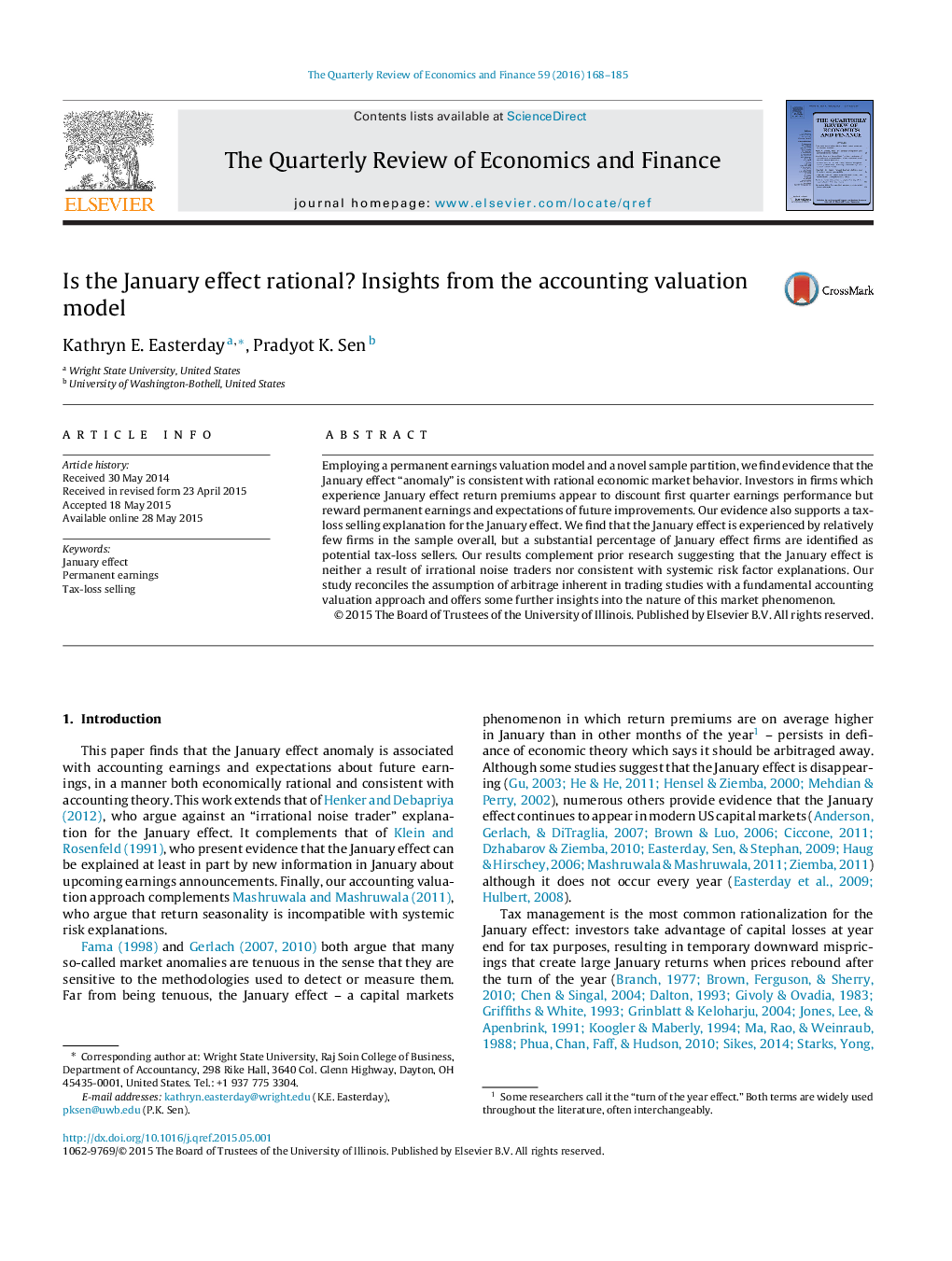| Article ID | Journal | Published Year | Pages | File Type |
|---|---|---|---|---|
| 983287 | The Quarterly Review of Economics and Finance | 2016 | 18 Pages |
•The January effect anomaly is consistent with rational economic behavior.•A tax-loss selling explanation for the January effect is supported.•The anomaly does not appear to be a result of irrational noise traders.•The anomaly does not appear to be consistent with systemic risk factor explanations.
Employing a permanent earnings valuation model and a novel sample partition, we find evidence that the January effect “anomaly” is consistent with rational economic market behavior. Investors in firms which experience January effect return premiums appear to discount first quarter earnings performance but reward permanent earnings and expectations of future improvements. Our evidence also supports a tax-loss selling explanation for the January effect. We find that the January effect is experienced by relatively few firms in the sample overall, but a substantial percentage of January effect firms are identified as potential tax-loss sellers. Our results complement prior research suggesting that the January effect is neither a result of irrational noise traders nor consistent with systemic risk factor explanations. Our study reconciles the assumption of arbitrage inherent in trading studies with a fundamental accounting valuation approach and offers some further insights into the nature of this market phenomenon.
